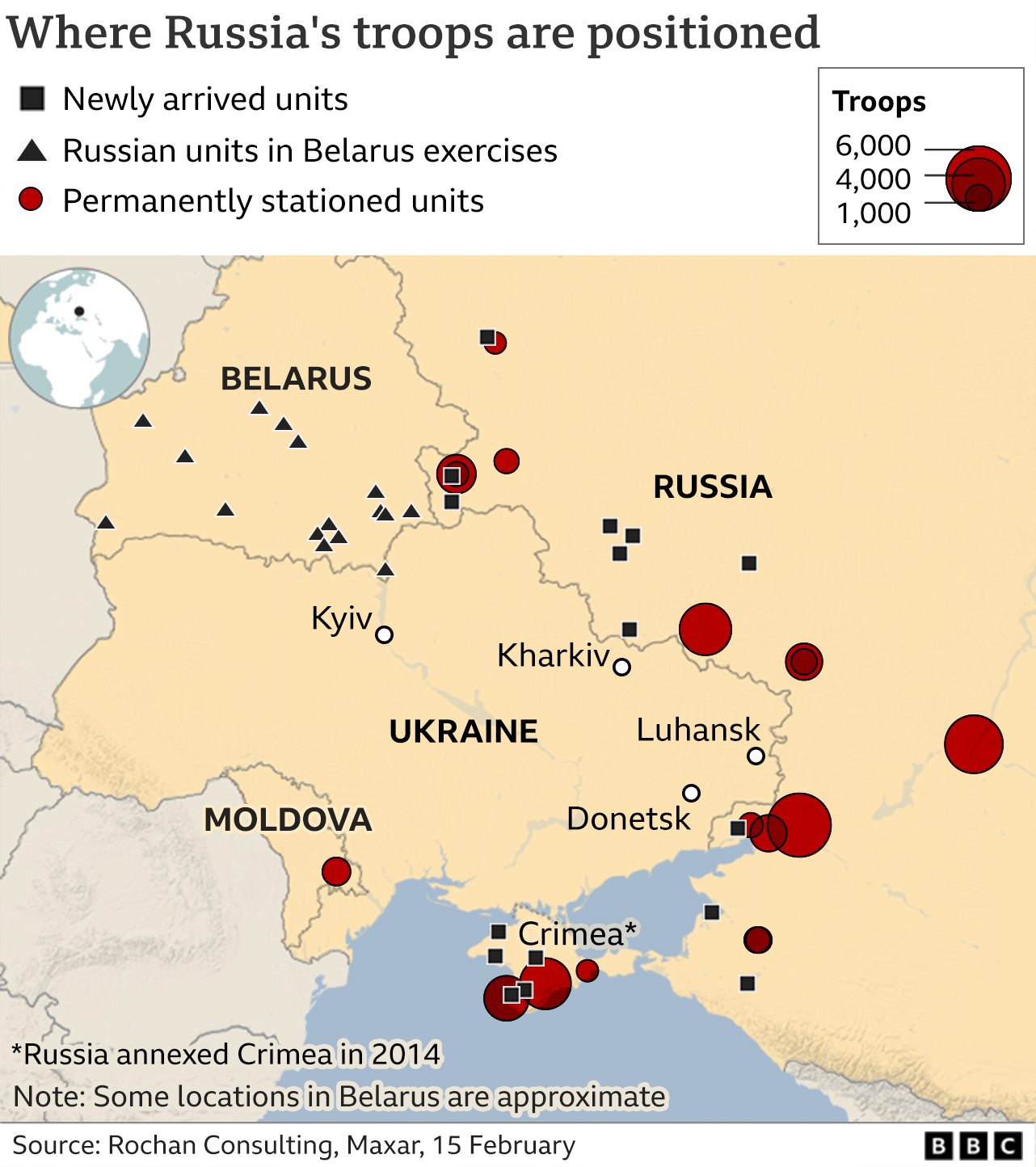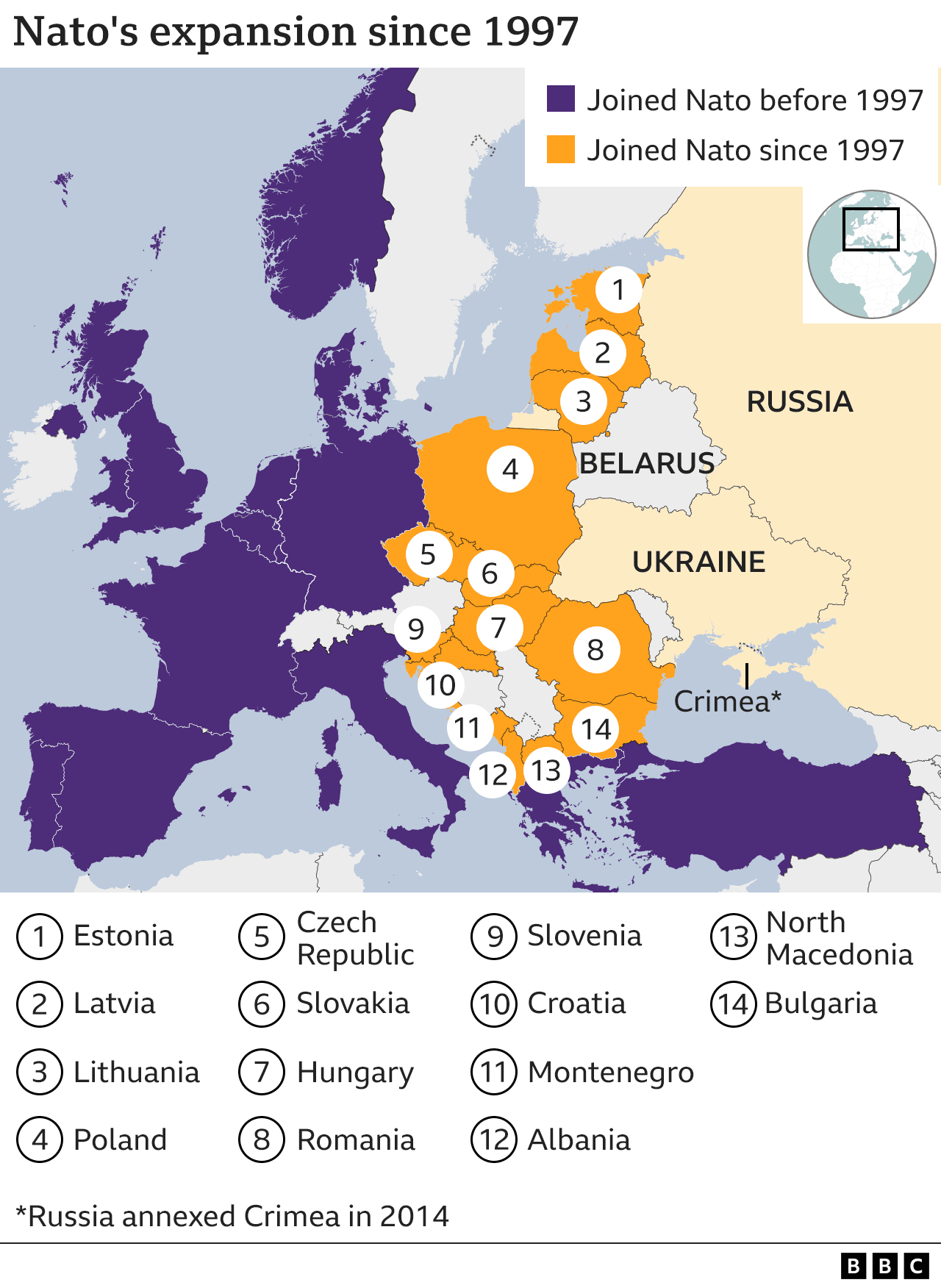Precusor, or Parting Slap?
 |
| Russian President Vladimir Putin speaks to German Chancellor Olaf Scholz during talks in the Kremlin in Moscow on Tuesday. (Mikhail Klimentyev/The Associated Press |
"Our analysts indicate that they remain very much in a threatening position.""If Russia attacks the United States or our allies through asymetric means like disruptive cyberattacks against our companies or critical infrastructure, we're prepared to respond.""The American people understand that defending democracy and liberty is never without cost. I will not pretend this will be painless.""To the citizens of Russia: you are not our enemy, and I don't believe you want a bloody, destructive war against Ukraine."U.S.President Joe Biden"As for war in Europe - about whether we want it or not? Of course not.""That is why we put forward proposals for a negotiation process, the result of which should be an agreement on ensuring equal security for everyone, including our country."Russian President Vladimir Putin"February 14, 2022 will go down in history as the day Western war propaganda failed.""Humiliated and destroyed without a single shot fired."Maria Zakharova, spokeswoman, Russian Foreign Ministry
 |
All the frantic diplomacy of last-minute urgency to avoid a possible planned invasion by Russia into Ukraine is meant to persuade Moscow that the cost of invading a sovereign nation will be very heavy for Russia to be burdened with, may finally have penetrated. No one, however, knows for certain because Mr. Putin is a crafty adversary and rarely does he blink to give any thoughts away freely. One of the deepest crises to hit East-West relations is playing out in agonizingly slow time, with both sides looking for answers to questions they've posted.
Mr. Putin is aggrieved that his demands for non-interference by NATO and withdrawals and promises to cease and desist its infiltration of east Europe have been frustrated. He would himself be taken aback should anyone suggest that he take orders from a source outside the Russian Federation, but feels entitled to dictate to NATO's alliance members what they may or may not contemplate for their future. Perhaps this is a symptom of what happens to an otherwise-rational mind when it lives in a palace.
 |
| In this photo taken from video provided by the Russian Defence Ministry Press Service on Tuesday, Russian armoured vehicles are loaded onto railway platforms after the end of military drills in South Russia. (Russian Defence Ministry Press Service/The Associated Press) |
Moscow has made a show of purporting to withdraw its heavy military machinery, returning the mechanical Goliaths to their bases. The impression is meant to be conveyed that these are tanks loaded onto rail cars out of the near proximity to the Ukraine border where troops have been amassed since November. On the other hand, they could be leaving Belarus, after their war games presence. If that makes a difference.
Now Moscow is admonishing Ukraine on a different front for having jilted Russia for NATO, by mounting a significant cyberattack. Surely Volodymyr Zelenskiy is beyond exasperation with the affectatious courting manoeuvres of a suitor he has long, long since lost interest in. "It is not ruled out that the aggressor used tactics of dirty little tricks because its aggressive plans are not working out on a large scale", noted the Ukrainian Centre for Strategic Communications and Information Security.
Problems with payments and a banking app were noted by Ukrainian bank Privatbank. And systems had faltered for Oshadbank. "It would mean a physical attack is imminent, or it could mean Russia is continuing to mess with Ukraine", a European diplomat speaking on condition of anonymity, offered; concerning because a full military attack on Ukraine, he felt, would likely be preceded by a cyberattack.
Distributed denial-of-service attacks, hackers flooding a network with unusually high volumes of data traffic paralyzing a system, characterized the cyberattack. Difficult to attribute, but, said the diplomat, no doubt that Russia was involved. And on with diplomacy! U.S. Secretary of State Antony Blinken informed his Russian counterpart Sergei Lavrov of a requirement that there be "verifiable, credible, meaningful de-escalation".
 |
| A Ukrainian serviceman fires an NLAW anti-tank weapon during an exercise in the Joint Forces Operation in the Donetsk region, eastern Ukraine, on Tuesday. (Vadim Ghirda/The Associated Press) |
"There are signs from Moscow that diplomacy should continue. This gives grounds for cautious optimism.""But so far, we have not seen any sign of de-escalation on the ground.""So the movement of forces, the movement of Russian capabilities doesn't represent real de-escalation, but we will monitor, we will follow what they are doing."NATO Secretary-General Jens Stoltenberg"It comes down to Putin because he has a view of history that sees the greatest catastrophe of the 20th century being the dissolution of the Soviet Union.""And I think, before he leaves, he's determined to restore as much of that as he can. He's in his late 60s now and I think he's determined to do it before he leaves — bring Ukraine back into Russia by force, if necessary, preferably by bluff."Colin Robertson, vice-President, Canadian Global Affairs Institute
 |
Labels: Cyber Attack, NATO, Russia, Ukraine, United States, War Games

<< Home